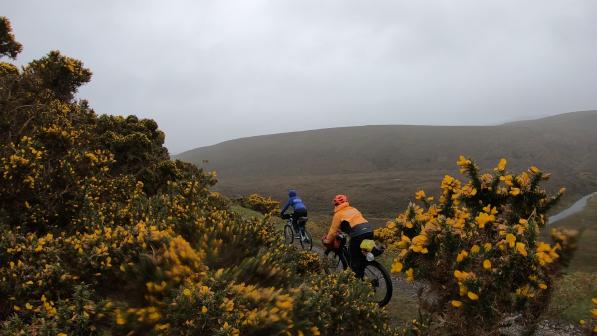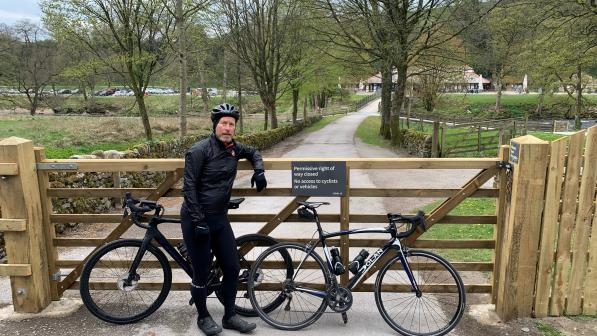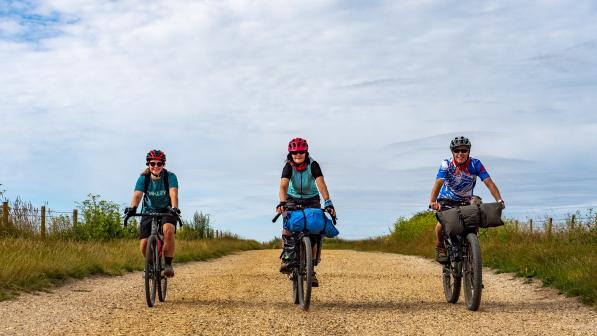Why I'll carry on wild camping

Three weeks on from the High Court decision on 13 January which ruled there is no right to wild camp on Dartmoor, I’m still feeling bitter and let down. Let down because for someone growing up in the south west, Dartmoor was always a wild and free place for me, and now it seems like that avenue of escape has been torn away for generations to come.
In the mid ‘90s as a lad I used to tramp up and down the tors in wind, rain, snow and shine as part of my training for (and then while doing) the Ten Tors.
This annual challenge for young people to navigate their way across the moor, linking 10 tors on routes of 35, 45 and 55 miles over a May weekend, was a highlight of my teenage years and the bedrock upon which I developed the skills as an outdoors enthusiast.
Learning to read a map, plot routes, get from A to B to C to D in thick mist, campsite cooking and above all learn about where to set your tent where there are no facilities was invaluable. These were the days where there was no distinction in camping – pop a tent up in an official campsite or in the wilds and well, it was just called camping.

Those wet and windy weekends have stood me in good stead on trips up and down the breadth of the UK and into the snow filled winter landscapes of European mountain ranges. They taught me how to survive in inclement conditions, and perhaps more importantly how to respect the landscapes I travel through.
By this, I mean not just in terms of understanding the impact of weather and terrain, but also the importance of leaving no trace, minimising my physical impact on the landscape so as to keep it preserved for future generations.
Which is why I feel so particularly aggrieved by the High Court decision. Wild camping, previously a welcome activity on Dartmoor, practised largely by conscientious folk, was being equated with “fly camping”, a wanton act of destruction to the countryside that reached its peak during the pandemic.
To compare the two different acts of camping is like comparing the act of putting your bins out every week with fly tipping. You don’t ban the weekly (or fortnightly) act of putting your bin out due to the illegal behaviour of the minority. If we did that all the time, life as we know it would change, though one upshot might be the roads being empty of traffic…
The piecemeal return of wild camping on the moor with the agreement of some landowners, which Dartmoor National Park managed to secure after the ruling is a bitter pill to swallow. This right can be removed at any time and the cash-strapped park is being forced to pay for something which previously was free.
It feels more like a stay of execution for the future of wild camping on Dartmoor, unless the park is first allowed to appeal the High Court judgement and then is successful.
However, it’s important to note amongst all this furore that while there is now no right to wild camp anywhere in England (and Wales), that does not mean the act itself is illegal.
In Scotland, there is a right to wild camp through the Land Reform Act 2003, In England and Wales, excepting certain places where byelaws expressly forbid it eg lands owned by Forestry England and the National Trust, and the Peak District and Lake District national parks (though there is a permissive policy in place in the Lakes), camping outside of designated locations is classified as trespass.
Trespass is a civil offence, not a criminal one requiring the police – unless you resist moving on, which is when it might be seen as aggravated trespass. My, and for the matter Cycling UK’s advice as part of its #12nightsoutin1year bikepacking challenge, is always to respect any requests of the landowner when it comes to staying on their land.
You of course have some rights if you’re injured and can’t move on, but I’d suggest always to try and ask for permission before setting up if there’s someone and somewhere obvious to ask. It should go without saying that a "No camping" sign, as distressing as it is to encounter, should be respected.
In the unfortunate situation where you do find yourself challenged by a landowner, I’ve found an apology works wonders. There’s no need to be antagonistic, and offering to move on or even a small donation to stay the night can often help ensure your overnight trip goes without a hitch.
In a sense, wild camping is not much different to when riding off-road and you end up on something that is not a bridleway or byway – which can easily happen with our fragmented network of paths which morph from bridleways into footpaths and vice versa.
While I feel aggrieved at the High Court’s decision, what has been encouraging has been the national debate it has sparked, delving in the responsibilities not just of those heading into the countryside like you or me, but perhaps more importantly those who have assumed stewardship of it.
Imagine an art collector who used a Rembrandt to light a fire. They’d hardly expect the rest of us to shrug our shoulders and say “Well it is theirs"
Rev Dr Michael Banner speaking on BBC Radio 4 Today programme
Rev Dr Michael Banner, dean of Trinity College Cambridge made a similar point on BBC Radio 4’s Today programme on 24 January when he asked listeners to “Imagine an art collector who used a Rembrandt to light a fire. They’d hardly expect the rest of us to shrug our shoulders and say “Well it is theirs”.” His point was the countryside is for everyone, and not a plaything for those more fortunate to own large swathes of it.
Landowners, whether they’re the Darwalls, who brought the High Court challenge, or the Duke of Devonshire who has banned cyclists from his estate in Bolton Abbey, will all receive public funding to maintain the lands for the public good. It is high time we started to see a return on that public investment.
The Reverend Dr Banner quoted St Augustine as writing, “The superfluities of the rich are the necessities of the poor. When you possess superfluities, you possess what belongs to others.”
Now is the time for those landowners to explore how through their superfluities – that land which extends beyond the privacy of what you would reasonably call a home - they can help serve the wider community.
It is easy to bash those who are more well off, but some of their concerns about the impact on the land they are stewards to are valid. However, their response to restrict responsible enjoyment is not.
By making it more difficult for people to enjoy the countryside, how can they learn about, engage with and ultimately learn to respect nature? That’s part of the argument of the Glover Review, the government’s own investigation into how people can enjoy the countryside responsibly and which includes recommendations that every child should experience a night under the stars.
Restricting access to our countryside – whether through wild camping or where we can ride our bikes - increases the risk of perpetuating a problem that at its heart comes down to a lack of awareness.
I’d defy anyone to say when it comes to visiting the countryside “familiarity breeds contempt”. Quite the opposite – the more you visit, the greater your respect for it grows.
Reform of the laws for how we can enjoy and promote responsible access to the countryside is needed. In England – and Wales – the government needs to engage with organisations which represent the different user groups of the countryside, and public to develop legislation around a right of responsible access.
If there is one silver lining to the restriction of wild camping, it is that politicians are taking note. Labour, the Liberal Democrats and the Green Party are now all talking about the need for responsible access, and while it is an unlikely major battle ground for a future election, we can only hope party manifestos will take note of the public mood and look to remodel the way we can all enjoy the countryside.
In the meantime, wheresoever wild camping is not illegal, I will not stop in my small acts of peaceful rebellion that give me so much peace of mind. I will continue to enjoy a responsible night out beneath the stars. Slinging my hammock or laying my bivi bag down late and leaving early.



